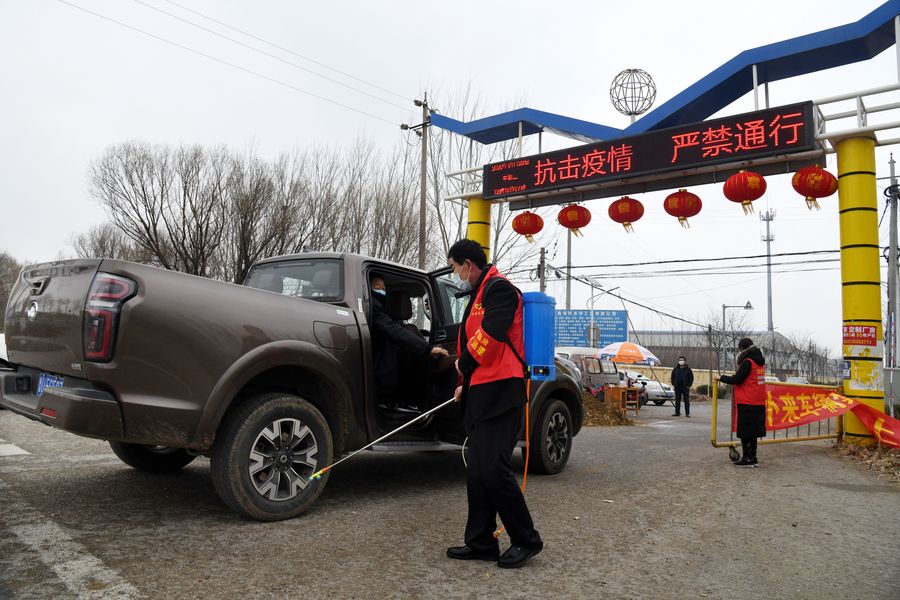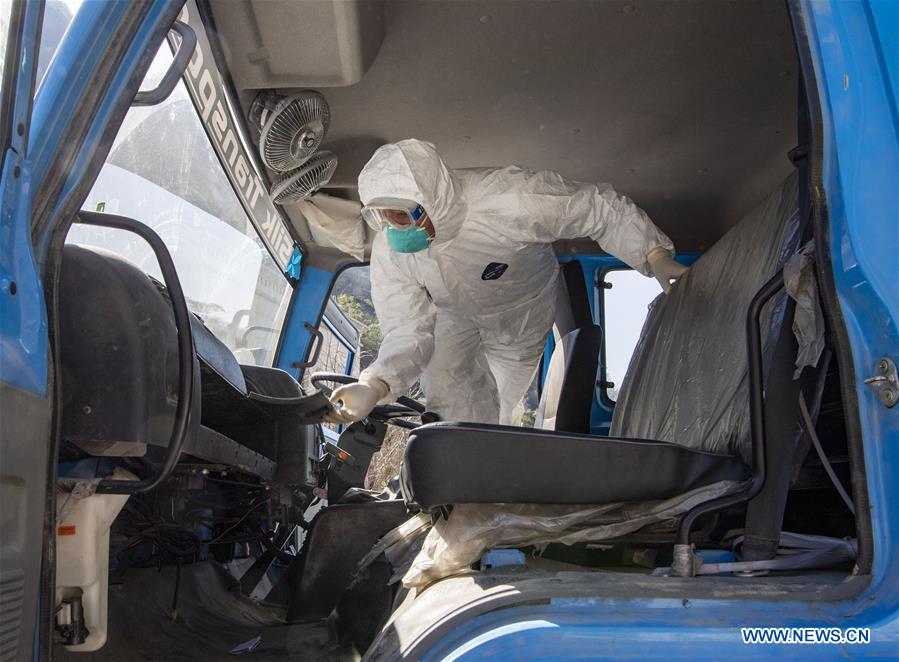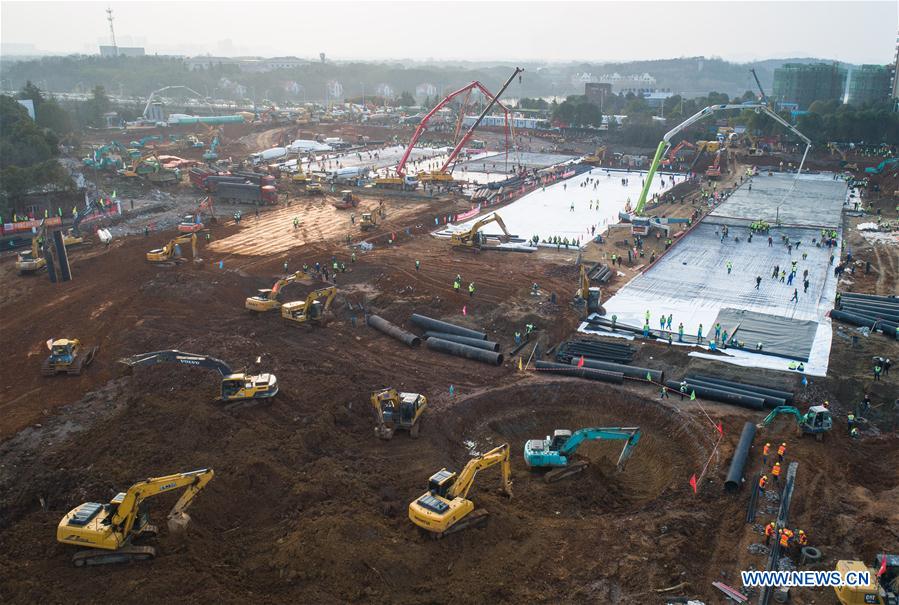Village chiefs patrolling with loudspeakers, long alert banners hanging on walls, and round-the-clock checkpoints set up to examine vehicles and visitors, this is what many Chinese villages are doing in the battle against the new coronavirus.
As the infection cases have been reported in most provincial-level regions in China, villages are one of the weakest links in the chain of prevention and control, but the measures there are often some of the toughest and smartest.
JINAN, Jan. 29 -- Village chiefs patrolling with loudspeakers, long alert banners hanging on walls, and round-the-clock checkpoints set up to examine vehicles and visitors, this is what many Chinese villages are doing in the battle against the new coronavirus.
As the infection cases have been reported in most provincial-level regions in China, villages are one of the weakest links in the chain of prevention and control, but the measures there are often some of the toughest and smartest.
"Fellow villagers, please wear masks, wash your hands regularly and avoid paying New Year visits to others, a phone call is enough!" This message is broadcast three times daily in Li Village in Jiaxiang County, east China's Shandong Province.
Paying visits to friends and relatives is a Chinese New Year tradition. It is preserved better in villages than in urban areas.

A man disinfects a vehicle at an entrance to Qianzhangjiazhuang Village in Jiangshan Town of Laixi City, east China's Shandong Province, Jan. 28, 2020. (Xinhua/Li Ziheng)
Wei Deli, Party head of Li Village, said that in order to prevent the spread of the epidemic this year, he urged the villagers to stay at home and launched a plan to "block" roads to the village.
Vehicles are parked in the middle of four entrances in order for village officials to examine cars and visitors from outside. But if villagers need to drive out, the parked vehicles will be moved away.
"The blockage doesn't affect emergency needs. Two days ago, a village elder fell sick. We drove the vehicles away in advance to let the ambulance in," said Wei. Though outside vehicles are basically banned from entering the village, villagers can be called to meet visitors just outside the village.
According to Wei, village doctors visit the families who have migrant workers recently returning from Hubei Province where the new coronavirus broke out. The doctors take the temperature of the members of these families twice a day. Wei will immediately report anyone with suspected infection symptoms to the township headquarters for control and prevention of the epidemic.
"Villagers agree with these methods," Wei said. "Epidemic prevention comes first and foremost for everyone."
China, with around 40 percent of its population living in rural areas in 2018, has nearly 700,000 villages. Medical facilities in the villages are often not as advanced as those in the cities, and as migrant workers return home during the Spring Festival, the risk posed by the epidemic is high.
"At present, the prevention and control of the pneumonia situation is in a crucial period," said He Qinghua, an official with the National Health Commission, on Monday. "We must give full play to the mobilization ability of primary-level communities, including rural communities" in personnel tracking and management among efforts to curb the spread of the virus.
Chinese villages are governed by village committees elected by villagers. This allows for more direct methods for mobilizing and informing local residents.













